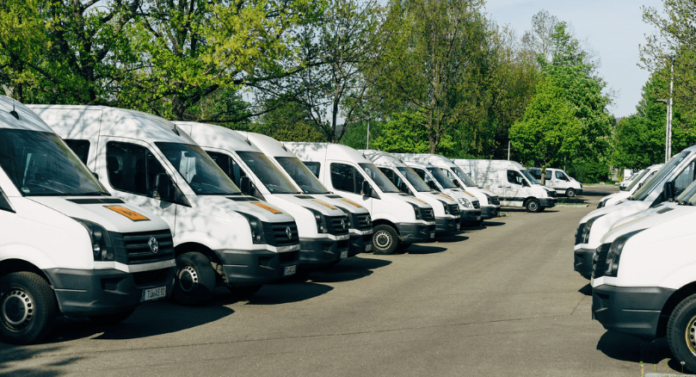As a fleet business owner, it’s important to make sure your vehicles are insured. Having the proper insurance can protect you from costly damages in the event of an accident. Let’s outline some essential tips for car insurance for fleet business owners. We’ll cover everything from liability coverage to comprehensive and collision insurance. By following these tips, you can help ensure that your vehicles are properly protected.
What Qualifies As A Fleet Vehicle?
A fleet vehicle is any type of vehicle that is owned or leased by a business and used for business purposes. This can include cars, trucks, vans, and even trailers. If you have any vehicles that are used for business purposes, then they most likely qualify as fleet vehicles.
For example, if you own a catering company, your catering van would be considered a fleet vehicle. Or, if you own a construction company, any trucks or heavy equipment that you use for work would be considered part of your fleet.
Why Do You Need Fleet Insurance?
Fleet insurance is designed to protect businesses from the financial risks associated with owning and operating multiple vehicles. If you have a fleet of vehicles, it’s important to have the proper insurance in place to protect your business in case of an accident.
Without adequate insurance, you could be left responsible for paying for damages out of pocket, which could quickly bankrupt your business. That’s why it’s so important to make sure you’re properly insured.
Can’t I Just Insure Each Vehicle Individually?
You could insure each vehicle individually, but it’s not recommended. Fleet insurance is designed to provide coverage for multiple vehicles under one policy. This can save you money and help simplify the process of insuring your fleet.
Fleet Sizes And How They Qualify For Insurance Rates
Small fleets (generally defined as three to five vehicles) will typically qualify for lower insurance rates than larger fleets. This is because small fleets are considered less of a risk by insurance companies. If you have a small fleet, be sure to mention this to your insurance agent. You may be able to get a discount on your premium.
Larger fleets (generally defined as six or more vehicles) may have to pay higher insurance rates. This is because larger fleets are considered a higher risk by insurance companies. If you have a large fleet, be sure to mention this to your insurance agent. You may be able to get a discount on your premium.
There are also some exceptions that can apply to fleet sizes. For example, if your fleet consists of all trucks, you may qualify for lower rates than other types of fleets. This is because trucks are generally considered less of a risk than other types of vehicles.
Be sure to ask your insurance agent about any discounts that may apply to your fleet size.
The Different Types Of Fleet Insurance Coverage
Now that we’ve covered what qualifies as a fleet vehicle and why you need fleet insurance, let’s take a look at the different types of coverage that are available.
Liability Coverage
One of the most important types of coverage for any business is liability insurance. This type of insurance protects your business from financial damages if you’re found responsible for an accident. If you don’t have adequate liability coverage, you could be on the hook for paying for damages out of pocket, which could quickly bankrupt your business. That’s why it’s so important to make sure you have adequate liability coverage for your fleet.
There are a few different types of liability coverages. The most common are bodily injury liability and property damage liability.
Bodily injury liability coverage pays for medical expenses if you’re found responsible for an accident that injures another person. This type of coverage is essential if you want to protect your business from a lawsuit.
Property damage liability takes care of repairs if you’re found responsible for an accident that damages another person’s property. This type of coverage is essential if you want to protect your business from a lawsuit.
In addition to bodily injury and property damage liability, there are also a few other types of liabilities that can be covered by fleet insurance. These include medical payments, personal injury protection, and uninsured/underinsured motorist coverage.
Medical payments coverage pays for medical expenses if you or your passengers are injured in an accident. This type of coverage is optional, but it’s a good idea to have if you want to protect your business from a lawsuit.
Comprehensive And Collision Coverage
Another important type of coverage for fleet businesses is comprehensive collision insurance. This type of insurance covers damage to your vehicles caused by things like weather, theft, or vandalism. It’s a good idea to have this type of coverage if you want to protect your business from unexpected expenses.
There are a few other types of coverages that are available for fleet businesses. These include towing and labor coverage, rental car reimbursement, and gap insurance.
Towing and labor coverage pay for repairs if your vehicle is disabled in an accident. This type of coverage is optional, but it’s a good idea to have if you want to protect your business from unexpected expenses.
Rental car reimbursement pays for the cost of a rental car if your vehicle is disabled in an accident. This type of coverage is optional, but it’s a good idea to have if you want to protect your business from unexpected expenses.
Gap insurance pays for the difference between the amount you owe on your vehicle and the amount your insurance company will pay if your vehicle is totaled in an accident. This type of coverage is optional, but it’s a good idea to have if you want to protect your business from unexpected expenses.
As you can see, there are a lot of different types of fleet insurance coverage available. It’s important to talk to your insurance agent about which coverages are right for your business. Be sure to ask about discounts that may be available to you.
Now that you know the essentials of car insurance for fleet business owners, you can be sure that your business is properly protected.





























